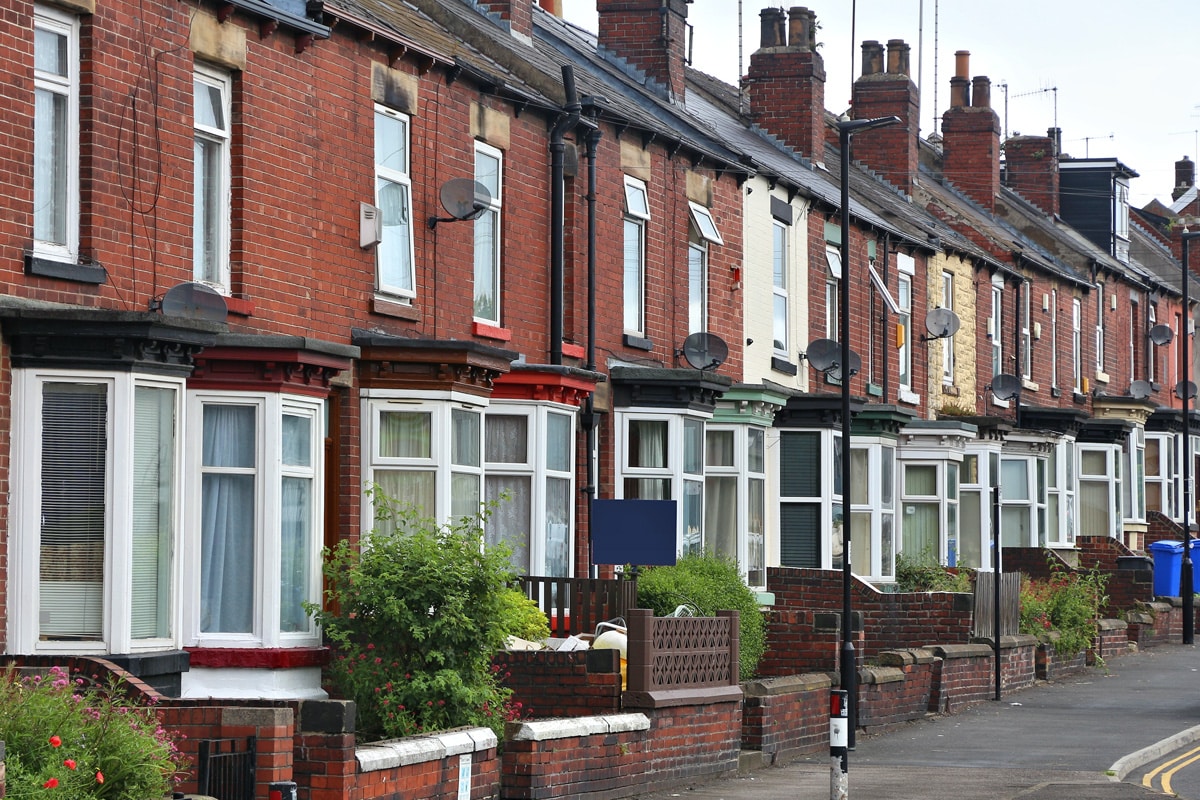A Guide to Investing in UK Property for Residents of Singapore
Low property prices and a country that’s easy to invest in are just some of the reasons Singapore residents might want to invest in UK property. Here’s some advice on how Singaporeans can invest in UK property, and how it is different to Singapore.
Quick Links
- Can Residents of Singapore buy Property in the UK?
- Where are Good Places for Singaporeans to Buy UK Property?
- How Much Does a UK Property Cost?
- What Types of Property can Singaporeans Buy in the UK?
- How to Find UK Investment Property
- Making an Offer
- How is Buying a Property in the UK Different from Singapore?
- Freehold and Leasehold Property
- Other Costs When Investing in UK Property
- Property Taxes in the UK
Can Residents of Singapore buy Property in the UK?
Yes, there are no restrictions for Singapore citizens who want to buy UK property. You do not need approval from the UK Government to buy UK property.
If you want to live in your UK property yourself you will need residential status in the UK. You don’t need residency in the UK to invest in property if you do not plan on living in the UK, however.
Here’s the visa and immigration information for the UK.

Access our selection of exclusive, high-yielding, off-market property deals and a personal consultant to guide you through your options.
Where are Good Places for Singaporeans to Buy UK Property?
If you’re buying UK property to rent it out - or buy-to-let - as it is known in the UK, you should aim to buy somewhere that has good demand for rental property and which offers you a good return on your money.
London is a very popular place to invest in property. However, cities outside London like Birmingham, Manchester, Leeds, Liverpool or Sheffield can be much cheaper and offer better rental returns.
Here’s a more detailed review of the best places to invest in UK property. Including a look at the areas (by region) with the highest buy-to-let rental yields, house price growth and population.

How Much Does a UK Property Cost?
UK property is much cheaper than Singapore in most cases.
According to this survey, the average price per square metre of a property in London is around GBP £12,800 (around 24,000 Singapore Dollars) per square metre compared to GBP £14,557 (27,400 SGD) in Singapore. Outside London however, you can buy property for GBP £3,000-£4,000 (5,500-7,500 SGD) per square metre or less – meaning UK property can be around 25% of the price of Singapore.
It’s a good idea to start by taking your budget in Singapore Dollars and converting it into GBP using a currency converter. This will give you an approximate idea of what you can buy in the UK.
Singapore residents and UK home loans. It may be possible to get a UK home loan or mortgage as it is known if you live in Singapore, although there are fewer lenders who offer non-resident mortgages. It is easier to get a UK mortgage if you are resident in the UK, although it will depend on the type of residency and visas you have and your job and income.
It is also possible to get a mortgage to buy property in the UK from some Singapore-based mortgage lenders.
You may be able to get a mortgage either in UK pounds (GBP) or Singapore Dollars (SGD) but consider carefully which is most suitable for you.
Here’s more information on how to get a mortgage in the UK, when you live abroad.
What Types of Property can Singaporeans Buy in the UK?
You can buy any type of privately owned property in the UK. There aren’t any restrictions on types and areas open to foreign buyers as there are in Singapore.
The UK market offers a wide range of different property types including landed houses and flats or apartments in blocks – the term condominium isn’t used in the UK. Landed properties come as detached houses, semi-detached houses and terraced houses. Since the UK has much more space than Singapore there are more houses than flats in most places.
How to Find UK Investment Property
To find UK investment property you can go to a real estate agent (known as just estate agents in the UK), look on the main property portals like Rightmove, Zoopla or On The Market, or buy directly from a property sourcing agent.
Tip. In the UK, the estate agent works for the seller and so the seller pays the estate agent’s fees. The buyer does not pay any estate agent’s fees either for their help in finding a property to buy or with buying it.
Making an Offer
Just as in Singapore UK property prices are usually negotiable rather than fixed. In the UK it’s usual for property sellers (or vendors as they are known) to set an asking price that is slightly higher than they are willing to sell for. It’s usual for buyers to make an offer that is lower than the asking price.
Tip. If lots of buyers are interested in the property and it is competitively priced you may have to offer the asking price or perhaps more in order to buy it.
Property surveys. If you want to know more about the condition of the property you’re interested in buying you can ask a surveyor to carry out a survey on it. This is usually done after your offer is accepted. The buyer normally pays for the survey.
Here’s more information about the different types of home surveys.
How is Buying a Property in the UK Different from Singapore?
While Singapore law shares much in common with English law there are legal differences when buying UK property.
As in Singapore, the process of transferring legal ownership from the seller to the buyer is known as conveyancing. You will need to find a solicitor or professional conveyancer to do the conveyancing for you. The seller and buyer each pay their own legal fees for the conveyancing.
Once a price has been agreed the seller or their estate agent will complete a memorandum of sale. This isn’t the same as an option to purchase or OTP as both buyer or seller can back out until the legal contract is exchanged. You do not have to pay a deposit now, although you might be asked to pay a reservation fee if it is a new build property.
Your solicitors will check everything including for good title and any encumbrances that might affect the property. They will then exchange contracts with the seller’s solicitor. You will need to pay a non-refundable deposit, typically 10%, now. The sale is then legally binding.
The next step is to agree on a completion date, as it is known. On the completion date, you will need to pay the balance of the purchase price and you will then receive the keys. Your solicitor will register the sale, or what is known as title, with HM Land Registry.
Here’s more about the process of exchange and completion.
Freehold and Leasehold Property
As in Singapore, the UK has both freehold and leasehold property ownership. Freehold and leasehold are not entirely the same as in Singapore, however.
With freehold property in the UK, the buyer owns the property and the land outright. When a property is a leasehold the property owner owns the property but leases the right to occupy the land from the freeholder for a number of years. The freeholder is normally a private company and not the Government.
When buying a leasehold property it’s essential to check the length of the lease remaining and any other terms and conditions that apply to the lease. It is possible to extend the lease on a leasehold property but you will have to pay for this.
Tip. Flats and apartments in the UK are normally leasehold and owned according to the UK version of leasehold (as above). They are not owned under a strata title system as in Singapore. Blocks of flats are normally maintained by a management company or managing agent directly appointed by the freeholder. They are not managed via a management corporation with the involvement of the owners as in Singapore.
Stamp Duty in the UK
Stamp Duty or Stamp Duty Land Tax (SDLT) is a tax payable by buyers of UK property. It is a similar concept to Buyer’s Stamp Duty (BSD) in Singapore. Stamp Duty is payable as a percentage of the actual sale price but it varies according to the value of the property and the status of the buyer.
More information about Stamp Duty can be found, here.
If you already own a property in the UK you will have to pay an additional or higher rate of SDLT which is 3% in addition to the normal rate. If you are not a UK resident you will have to pay a non-resident rate of SDLT which is 2% in addition to the normal rate. These additional rates are similar in concept to Additional Buyer’s Stamp Duty or ABSD in Singapore.
Other Costs When Investing in UK Property
There are some other costs to bear in mind when investing in UK property. These are similar to Service and Conservancy charges or S & CCs.
Council Tax is an annual charge for local council services and is based on the value of your property. It is payable by all property owners but if you’re renting your property out it’s usual for your tenant to pay the Council Tax.
If your property is a flat or apartment there may be an annual service charge to pay. This is to cover the cost of maintenance and is shared between all the owners.
Property Taxes in the UK
If you’re buying a UK property as a rental investment there could be UK income tax to pay on the rental income, depending on how much it is and your tax position in the UK. You can claim many (but not all) of the expenses of running your rental property as a tax deduction, however.
You might have to pay Capital Gains Tax when you sell your property.
There might also be Inheritance Tax to pay by those who might inherit your UK property in future.
Tip. It’s advisable to take expert advice on investing in property in the UK. Check how it will affect your tax situation both in the Republic of Singapore and in the UK before you buy your property. Be aware that owning property in another country could affect your status when it comes to owning property in Singapore.
Important. Information in this article is based on the law of England. If you are buying property in Scotland, Scottish property law is different.
